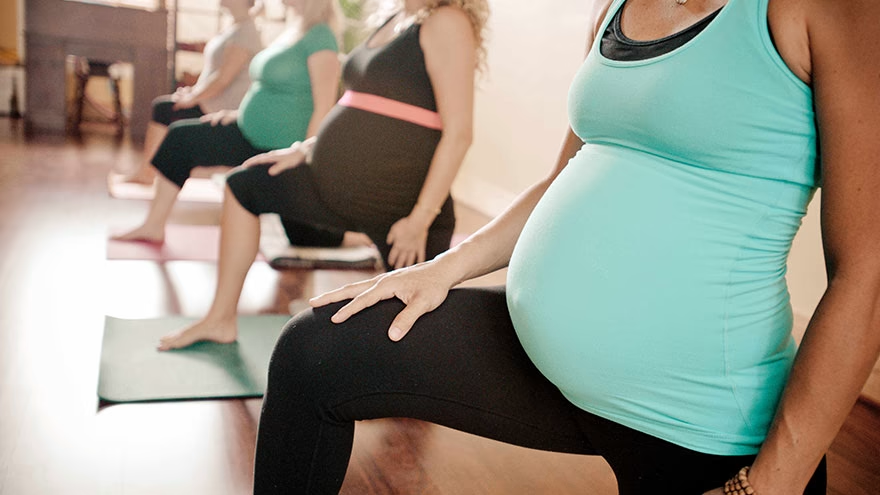Even sedentary women can start an exercise program and see similar improvement. Build a well-informed exercise plan to prepare for the physical and hormonal challenges of pregnancy.

Before You Start
Any woman, whether she has been sedentary or active, will likely have little to no difficulty performing an exercise routine during pregnancy, but there are some factors every women should consider and discuss with her physician before getting started.According to the Mayo Clinic, you should discuss any history of diabetes, high blood pressure, heart disease or excessive bleeding during past deliveries with your doctor when asking for exercise recommendations. If you have been sedentary, it is likely that you can still begin an exercise program to get all the benefits; just take it easy by exercising at a mild intensity when you do.
How Much Exercise?
The general standard of 150 minutes a week continues to apply during pregnancy and should be split up over several days. There was once a belief that a pregnant woman shouldn't do anything that raises her heart rate above 140 bpm, but that has been found to be false.It is recommended to avoid high-intensity workouts, however. Stick to the general rule of engaging in activity that allows you enough breath to be able to carry on a conversation.
What Kind Of Exercise?
Walking, swimming, rowing and stationary cycling are great options for regular aerobic exercise. Engage in any of these activities at a moderate difficulty level for 30 minutes a day to reap many of the benefits of exercise during pregnancy. If you have been sedentary, work up to 30 minutes slowly.Start with walking five minutes a day for the first week, then increase your exercise time by five minutes a week until you are able to do 30 minutes a day without exhausting yourself.
What To Avoid
It is not recommended to hike at high elevations, nor dive to depths with significant pressure while pregnant. If you experience dizziness, shortness of breath, headaches or pain in the chest or abdomen, you should stop and rest. Sports are not highly recommended, because injuries from contact or falls are a concern.Weight lifting helps develop and maintain strength, but you should avoid any exercise that requires lying on your back. Above all, listen to your body; take a rest whenever you want. If you have any concerns, talk to your doctor to get personal recommendations.
Save for later
Found this helpful?
Pin this article to your Pinterest board and come back to it whenever you need a reminder.
Save to Pinterest


